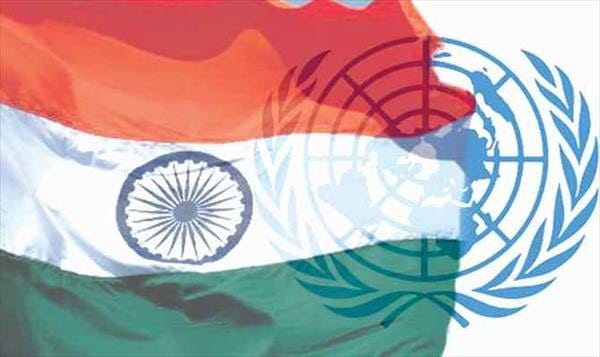UN General Assembly President Maria Fernanda Espinosa has described India as a ‘very important player’ of global multilateral system. “India is indeed a very important player of the multilateral system. It is a friendly country to the United Nations. If India succeeds in the achievement of the 2030 Agenda – we are talking about 1.3 billion people – this really can change the face of the world,” said Espinosa who assumed presidency in September this year. Sustainable Development Goals (SDG), also known as 2030 agenda is a set of 17 goals which is set by UN General Assembly to be achieved by 2030. The SDG aims to solve many socio-economic problems such as, poverty, hunger, health, education, global warming, gender equality, water, sanitation, energy, urbanisation, environment and social justice.
Espinosa is former foreign minister of Ecuador and was elected as UN General Assembly president in June this year. She is the fourth female president of the general assembly. As foreign minister of Ecuador she had visited India earlier and had meetings with PM Modi. She lauded India’s efforts in UN peacekeeping forces and its progress towards SDG. “It is very important also to set the standards on issues of involvement of women in peacekeeping, zero tolerance to any abuse or violence against women peacekeepers and against women and girls in general in conflict situations,” said Espinosa. She also congratulated PM Modi for UNEP Champions of the Earth award. “I was very happy to see the award given to India and Prime Minister Modi for his environmental work and to look at the every strong commitment of India towards renewable energy. They are really very important players for the climate agenda as well,” she said.
Espinosa was very impressed by many social movements like Swachh Bharat Mission and access to clean energy to poor people. “I see that things are happening in a very positive way. The favorable conditions are a very dynamic and active civil society engagement, vibrant democracy, strong participation of people, engaged citizens are the conditions you need to make a difference and the conditions are there in India,” she said. India has made ‘great leap forward’ on socio-economic front in the last two decades. The economic liberalization started wealth creation in the country at large scale and this helped to deliver essential necessities.
The country has made significant improvement in the decrease of maternal mortality ratio, infant mortality ratio, and gender gap ratio. India is no longer home to the largest number of poor people in the world, every minute 44 Indians are being pulled out of poverty, thanks to economic liberalization. Today most of the household have access to electricity and clean cooking fuel. On health front, the government is going to implement a near universal healthcare insurance program to democratize healthcare access. To face the increasing challenges of rapid urbanization, infrastructure investment has been increased by the government. India’s ranking in Human Development Index (HDI) improved significantly during last decade. The transparent delivery of welfare money through Direct Benefit Transfer (DBT) has saved billions of dollars of taxpayers’ money. The policymakers are also discussing to implement Universal Basic Income (UBI) in which government will transfer a certain amount of money to poor people for their access to basic amenities. All these efforts have led to the improvement in standard of living of common people. However, there are still many challenges that Indian people face and therefore India’s contribution in improvement of socio-economic well being of its people will be an important part in achieving of UN’s sustainable development goals.






















